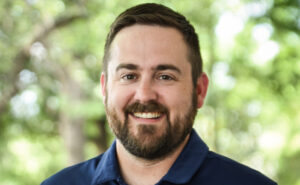
Matthew Bilskie
The National Oceanic and Atmospheric Administration’s (NOAA) National Center for Coastal Ocean Science (NCCOS) recently announced $6.7 million in funding under the Effects of Sea Level Rise (ESLR) program would be spent on coastal resilience projects around the country. University of Georgia College of Engineering assistant professor Matthew Bilskie’s project, conducted alongside partners from the U.S. Geological Survey and Embry-Riddle Aeronautical University, has been selected as one of the recipients.
The project, Informing Coastal Adaptation and Management through the Coastal Dynamics of Sea Level Rise (iCAM-CDSLR), is partnering with communities along the Gulf Coast to enhance proposals to agencies for innovative nature-based flood mitigation projects.
Local leaders and planners involved in hazard mitigation face a daunting challenge with climate change. Communities must plan and implement resilience projects tailored to their local needs, yet many lack the capacity due to insufficient data, confusion about its use, and a shortage of expertise. Support, both in terms of time and technical assistance, is crucial for communities’ resilience to natural hazards – which is where the iCAM-CDSLR project comes in.
The project will integrate socioeconomic, hydrodynamic, morphologic, and ecological data to model human and environmental responses to mitigation and adaptation strategies in different sea level rise scenarios. Additionally, it will compare predicted flood hazards and benefits, considering nature-based flood mitigation projects and potential adaptation measures.
“I am excited to work alongside coastal communities and to provide flood hazard solutions using cutting-edge research and technology,” said Bilskie, iCAM-CDSLR project lead.
Bilskie is conducting this project in collaboration with Craig Landry and J. Scott Pippin at the University of Georgia, Davina Passeri at the U.S. Geological Survey St. Petersburg Coastal and Marine Science Center, and Stephen Medeiros at Embry-Riddle Aeronautical University.
This project began in September 2023 and is expected to end in August 2025.
By Lillian Ballance


